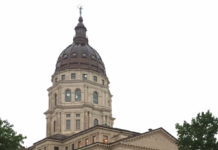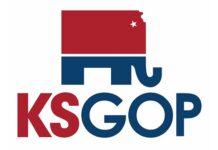A federal judge on Friday agreed to permanently stop Kansas ethics officials from applying the state’s definition of a political action committee to an Overland Park neighborhood group but stopped short of declaring the entire law unconstitutional.
U.S. District Judge Daniel Crabtree issued a permanent injunction that keeps the state ethics commission from applying the law so that Fresh Vision OP would be required to file reports showing which candidates the group supports financially.
Crabtree ruled that the state’s campaign law impermissibly allowed Kansas to designate Fresh Vision – “a group with a major purpose of express advocacy but no more than that” – as a political committee.
Crabtree found that the law would violate Supreme Court precedent because it would allow state ethics officials to apply the PAC requirements to Fresh Vision without first establishing that express advocacy is the group’s singular major purpose.
The court permanently blocked the state from classifying Fresh Vision as a political committee after finding that express advocacy is a major purpose – but not the major purpose – of its organization under state law.
However, Crabtree denied a request on the broader question of whether the state campaign finance law was unconstitutional, limiting his ruling only as applied to Fresh Vision.
In denying the broader constitutional challenge, the judge found that Fresh Vision failed to show that the state’s definition of a political committee imposes more unconstitutional applications than lawful ones.
Kansas law defines a “political committee” as any group with “a major purpose” of expressly advocating for candidates or contributing to them.
But Crabtree said legal precedent establishes that the First Amendment only allows the government to regulate groups with the major purpose of expressly advocating for candidates.
Crabtree ruled that the ethics commission could not apply the PAC definition based on a determination that Fresh Vision is a “political committee” because express advocacy is a major – not the major – purpose of Fresh Vision.
The judge also ruled against Fresh Vision’s request to rule against part of the campaign finance law that sets a $100 spending threshold for reporting independent expenditures during a calendar year.
The plaintiffs testified that they would refuse to exceed the $100 threshold specifically if they had to file disclosure reports like one required of political committees.
But Crabtree ruled that the plaintiffs’ feared consequences — reporting requirements on par with those of a political committee — “invoke a form of enforcement that is no better than hypothetical and speculative.”
As a result, Crabtree ruled that Fresh Vision failed to establish an injury and, as a result, lacked standing to challenge the independent expenditure threshold law ahead of any enforcement brought by the state.
Crabtree awarded legal fees to the plaintiffs in the case.
Mark Skoglund, executive director of the ethics commission, could not be reached for comment on the ruling Friday afternoon.
Ryan Kriegshauser, one of the lawyers representing Fresh Vision, said the decision was being reviewed but was pleased the temporary injunction was made permanent.
“The court’s order protects our clients’ First Amendment rights and finds our clients to be prevailing parties in this constitutional litigation, making it possible that their attorney fees will be paid by the agency,” Kriegshauser said in a statement.
“However, the opinion makes clear that the Legislature has work to do on these issues.”
The federal lawsuit was an outgrowth of an ethics complaint brought against Fresh Vision OP three years ago.
The ethics commission ruled in 2022 that Fresh Vision OP fell within the scope of the law defining a political action committee after it urged voters in 2021 to vote for Overland Park City Councilman Faris Farassati for mayor.
However, the ethics commission agreed to drop two ethics complaints against Fresh Vision members as part of an agreement that called for issuing a “letter of caution” to the group.
Fresh Vision suspended its activism after the ethics case was dropped to avoid being regulated as a political committee and to avoid exposing its officers to liability under state campaign finance laws for failing to file the required reports.
State law and regulations require a political committee to appoint a chairperson and treasurer, file a statement of organization, file a financial report, and file a report identifying each candidate who receives a donation.
Now, the group is looking to return to the public square, leading them to challenge the law for fear that they would face a new ethics complaint.
But it feared the ethics commission will label them again as a PAC, forcing them to be subject to state financial disclosure requirements even if they aren’t expressly advocating for candidates.
Fresh Vision’s members have long said that they are made up of neighbors whose major purpose was advocating for their community, not any particular candidate.
The group’s members told the ethics commission that they spent less than 15% of their money and less than 50% of their time on express advocacy.
They have opposed tolling on U.S. 69, new development at Overland Park’s arboretum and the use of rocky, oily material called chip seal used to preserve city streets.
More recently, they took an interest in the city’s plans to replace an outdoor pavilion with an indoor market in downtown Overland Park.
















